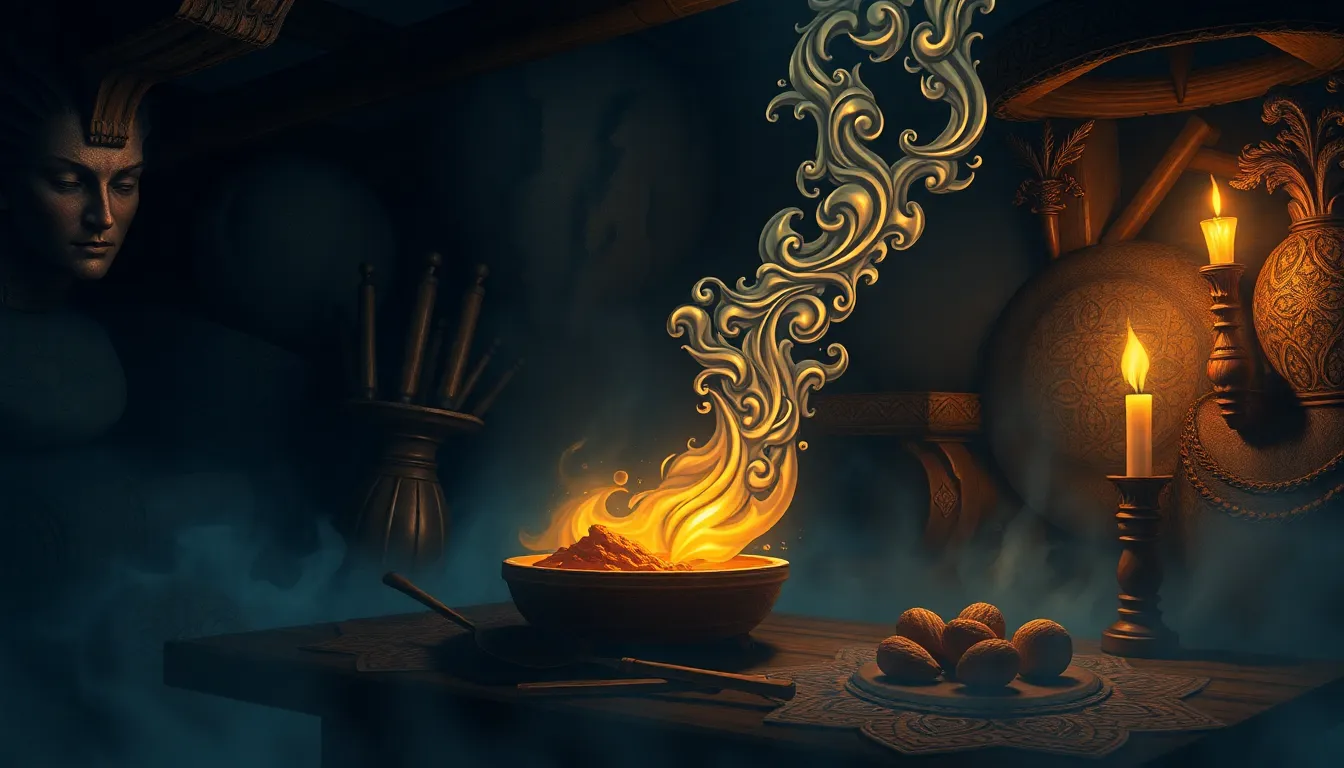The Divine Quest: When Mortals Meet the Gods
Introduction: The Intersection of Mortality and Divinity
The theme of mortals encountering gods is a timeless narrative that spans across cultures and epochs. These divine interactions serve as a bridge between the human experience and the transcendent, providing insight into the beliefs, fears, and aspirations of humanity. From the epic tales of ancient civilizations to contemporary interpretations in literature and media, the significance of these encounters highlights the quest for meaning, guidance, and understanding in a complex world.
Historical Context: The Role of Gods in Ancient Civilizations
Throughout history, ancient cultures have revered their deities, attributing to them the power to influence the natural world and human destiny. The gods were often seen as embodiments of natural forces, moral ideals, and societal values.
- Greek Mythology: The Olympian gods, such as Zeus and Athena, were integral to Greek life, representing various aspects of existence, from war to wisdom. Their narratives often depicted interactions with mortals that reflected human virtues and vices.
- Egyptian Mythology: The Egyptians worshipped a pantheon of gods like Ra and Osiris, believing these deities controlled the cycles of life and death. Divine interactions often involved judgment and guidance in the afterlife.
- Norse Mythology: In Norse tales, gods like Odin and Thor engaged directly with humans, providing both aid and challenges, emphasizing the harsh realities of existence and the importance of bravery and honor.
Mythological Archetypes: The Hero’s Journey
Joseph Campbell’s concept of the monomyth, or the Hero’s Journey, outlines a universal narrative framework where heroes embark on adventures, face trials, and achieve transformation. Divine encounters play a crucial role in this journey, often acting as catalysts for growth and change.
Key mythological heroes such as:
- Hercules: Received guidance and challenges from gods, shaping his path to redemption and strength.
- Odysseus: Encountered gods like Athena, who provided wisdom and protection during his arduous journey home.
These divine interactions not only propel the narrative forward but also reflect the hero’s inner struggles and triumphs.
The Nature of Divine Encounters: Favor, Wrath, and Guidance
Divine encounters can manifest in various forms, ranging from blessings and guidance to wrath and punishment. Each type of interaction carries profound implications for the mortal involved.
Examples of these themes include:
- Favor: When mortals receive blessings from gods, such as Persephone’s return to Demeter, it signifies hope and renewal.
- Wrath: The punishment of Arachne by Athena serves as a cautionary tale about hubris and respect for the divine.
- Guidance: The way Hermes aids travelers illustrates the protective nature of divine beings toward mortals.
Mortals Transformed: The Impact of Divine Encounters
Encounters with the divine often result in significant transformations for mortals, altering their fates and destinies. These interactions can lead to personal growth, a shift in perspective, or even tragic outcomes.
Case studies of famous characters include:
- Hercules: His trials and eventual apotheosis illustrate the hero’s transformation from a flawed mortal to a revered god.
- Odysseus: His encounters with various deities teach him resilience and wisdom, ultimately leading to his homecoming.
Such transformations reflect the profound impact of divine encounters on human lives.
Divine Disguises: The Complexity of Godly Appearances
Many myths feature gods who take on mortal forms or disguise their identities, adding layers of complexity to divine encounters. These instances often explore themes of deception, revelation, and the nature of belief.
Significant examples include:
- Zeus: Frequently disguised himself to interact with mortals, testing their virtue and hospitality.
- Hermes: Often acted as a messenger, guiding mortals in disguise, illustrating the blurred lines between the sacred and the mundane.
The significance of these disguises reveals the intricate relationship between gods and mortals, highlighting the themes of trust and revelation.
Cultural Reflections: How Divine Meetings Shape Societal Beliefs
The stories of divine interactions profoundly influence societal beliefs, moral codes, and cultural norms. These narratives serve as reflections of human values and aspirations, shaping the way societies perceive justice, morality, and the divine.
Contemporary interpretations in modern media often bring these ancient tales to life, demonstrating their relevance. Examples include:
- The adaptation of Greek myths in films such as “Clash of the Titans.”
- Literary works like the “Percy Jackson” series, which reimagines the adventures of demigods in a modern context.
The Quest for Divine Understanding: Philosophical Implications
Divine encounters not only reveal the nature of the gods but also offer insights into human nature and the search for meaning. Philosophical discussions surrounding these themes often explore existential questions and the relationship between mortals and the divine.
Insights from philosophy and theology suggest that these interactions reflect humanity’s yearning for connection, understanding, and purpose.
Modern Adaptations: The Reimagining of Divine Encounters in Literature and Film
In contemporary literature and film, the reimagining of divine encounters has become a popular theme. Works that draw on ancient myths often modernize the narratives, making them accessible and relevant to today’s audiences.
Examples include:
- The “Percy Jackson” series: A modern take on Greek mythology that engages younger audiences.
- Marvel’s Thor: A portrayal of Norse gods that combines mythology with superhero themes, broadening the appeal of ancient stories.
These adaptations not only entertain but also encourage a renewed interest in the myths that have shaped human culture.
Conclusion: The Enduring Legacy of Mortal-God Interactions
The encounters between mortals and gods resonate through time, reflecting humanity’s eternal quest for understanding and connection with the divine. These stories remind us of the complexities of existence and the profound impact of our relationships with the transcendent.
As we explore these narratives, we are called to reflect on our personal connections to the divine, seeking meaning in our own lives amidst the chaos of modernity. The enduring legacy of these interactions invites us to embrace the divine quest that lies within us all.



